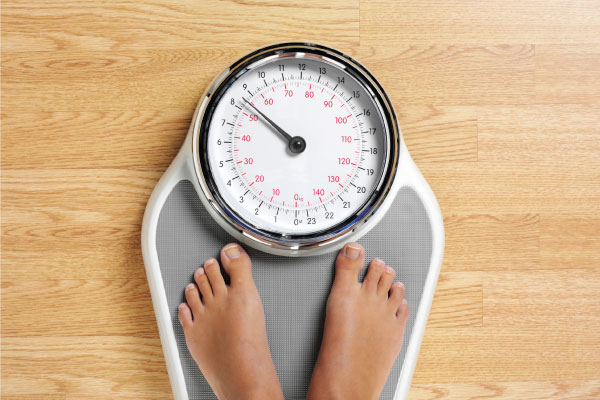If the figures on your scale are having a frenzy this season, it’s time to take charge of your health. Behnaz Sanjana talks to the experts on how to safely shed that unwanted baggage and prevent from tipping the scales towards obesity.
At some point in time we’ve all been at war with our scales – only to retaliate with harmful dieting and then eating everything in sight. What has transpired over the years to cause this?
The Facts
Your ideal weight range depends on height, age and gender. A 20 per cent excess over this range is considered ‘overweight’. When this overweight status is exceeded by another 20 per cent, you’ve joined the ever-growing obesity club.
Obesity is measured using yardsticks like Body Mass Index (BMI), waist-hip ratio, waist circumference and the body fat percentage.
“Being overweight is a result of energy imbalance over a period of time. An energy imbalance arises when the number of calories consumed is greater than the number of calories used by the body,” says Dr Archana Ainapure, a nutritionist at VLCC Bahrain.
Conditions like Hypothyroidism, where the thyroid gland does not make enough thyroid hormone, and Hyperinsulinemia, where there are excess levels of insulin circulating in the blood than expected relative to the level of glucose, cause excessive weight gain and could be hereditary. But families also share lifestyle habits that may contribute to obesity. “Separating these from genetic factors is often difficult,” adds Dr Archana.
What has changed between the 1990s and now? The villain that is junk food peaked and found its way into our gut. “Fast foods are calorie dense and available in large portions at low prices. This automatically leads to overeating,” says Dr Archana.
Take a sedentary lifestyle devoid of any exercise, for example, and add stress and sleep disturbances. This lethal combination saps energy and increases sluggishness and weight gain.
However, some lucky ones can eat a walrus and still be a size 12. It all boils down to one’s Basal Metabolic Rate (BMR). BMR is the energy expended by the body for basic functions – the beating of the heart, blood circulation and respiration. A low BMR spends less calories on bodily functions, making the person lethargic and averse to physical activity. Naturally, the calories consumed will be more than can be burned – and then you’re shopping in the plus size section.
Increasing BMR by skipping fatty food, exercising more and correcting hormonal disorders will curb obesity to a great extent.
But faddy diets with their fancy names are all the rage, unfortunately. Dr Archana warns, “These diets are deficient in nutrients and fibre. They give quick results, but are not sustainable. Only muscle mass and water from the body is lost, not fat. Extreme diets and weight loss pills could cause fatigue, nausea, heart disease and stress your liver and kidneys.”
Extreme dieting can bring back the weight faster than it took to lose it. This yo-yoing effect brings the body to a plateau with those inches refusing to budge further.
A good balance of food with healthy portions of proteins, carbohydrates, fat, fibre and water will help take that weight off and keep it off. Weight loss must be a slow and steady process to be sustainable. “One should match the calorie intake with the BMR to gain long-term results. Staying hungry is not the remedy,” our expert says.
A perfect diet plan with an exercise regime suited to your needs and body type and a generous dose of dedication to live a long, wholesome life will help you jump on the healthy bandwagon.
Obesity and the Psyche
 The health consequences of obesity are well known, but the psychological effects are often sidelined. “Obesity carries a stigma that leads to low self-esteem and a lack of confidence in social situations,” says Huma Vachha, a clinical psychologist.
The health consequences of obesity are well known, but the psychological effects are often sidelined. “Obesity carries a stigma that leads to low self-esteem and a lack of confidence in social situations,” says Huma Vachha, a clinical psychologist.
Society primarily puts slimmer people on a pedestal. Severely overweight people are likely to feel alienated in society, and thus be less concerned about their physical appearance.
“Research has shown that obesity is frequently accompanied by depression and the two can trigger each other. Women are more likely to be affected by the obesity-depression cycle than men. It can lead to binge eating which is a symptom of depression,” says Huma.
She also notes that those on the heavier side of the scale often face discrimination in the workplace due to being perceived as having less potential for success and possessing fewer leadership qualities. It can go as far as salary discrimination where an average-sized person will be paid more.
Obesity can also result in low self-confidence in the bedroom. Obese women may see their bodies in an undesirable light, affecting their intimacy with their partners.
The New Trend
Bariatric surgery has recently gained popularity as a way to get back in shape. Contrary to common perception, it is not a cosmetic procedure but a necessary one for the super obese (with a BMI over 50) to get back to living a normal life. “Obesity is the root cause of all disease. Obese patients have a number of serious emotional and physical issues at relatively young ages,” says Dr Stephen Angamuthu of the Royal Bahrain Hospital.
Those with a BMI of 35 along with abnormalities like diabetes, or simply a BMI over 40, qualify for bariatric surgery as per internationally accepted guidelines. “We do not encourage people to go for these procedures unless they have failed to lose weight even after a healthy diet and exercise plan. Patients are assessed to ensure that obesity is not due to behavioural or hormonal problems, in which case the underlying cause must be corrected,” says Dr Stephen.
Bariatric surgery is done in different ways, which vary in complexity, depending on the requirements and goals of the patient.
Surgery must be the last resort to combat obesity and must be followed up with healthy eating and exercise habits to lead a normal, fulfilling life. This is important to maintain the ideal body weight and retain the required muscle mass.
Dr Stephen cited a case where a patient who weighed 140 kilograms decided to go the uphill ‘healthy lifestyle’ route and managed to bring his weight down to 80 kilograms. “If there is the will to be healthy, it can be done with nutritious diet and exercise alone,” he says.





































